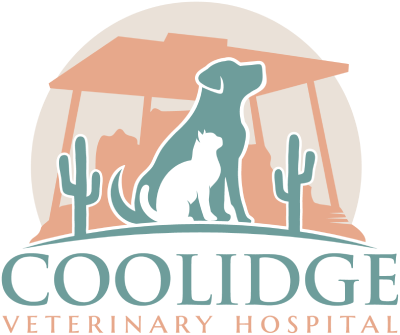At Coolidge Veterinary Hospital, we are committed to helping pets live long, active, and pain-free lives. Arthritis—also known as osteoarthritis or degenerative joint disease—is one of the most common causes of chronic pain in aging dogs and cats. While it may not always be entirely preventable, early care can significantly lower the risk, slow its progression, and help your pet maintain mobility and comfort in their senior years.
Keeping a Healthy Weight Protects Joints
Extra pounds do more than just affect appearance; they place excessive pressure on joints and cartilage, accelerating wear and discomfort. At Coolidge Veterinary Hospital, our Dog Services and Cat Services include nutritional evaluation so you can understand your pet’s ideal weight. Portion control, selecting high-quality diets, and regular monitoring all help preserve healthy joint function and prevent unnecessary strain.
Nutrition, Supplements, and Whole-Pet Care
What pets eat has a direct effect on how their joints age. Diets enriched with omega-3 fatty acids, lean proteins, and other anti-inflammatory nutrients reduce inflammation and support flexibility. Our veterinarians may also recommend supplements such as glucosamine, chondroitin, Cetyl-M, or Duralactin, and in some cases injectable options like Adequan.
At Coolidge Veterinary Hospital, we combine diet, supplements, and therapeutic services—like laser therapy or rehabilitation exercises—to create a more complete joint-health strategy. You can learn more in our blog post on Nutrition Strategies to Protect Joint Health in Aging Pets.
Regular Veterinary Care & Early Detection
Because pets are experts at hiding pain, arthritis often isn’t obvious until damage is advanced. That’s why routine wellness exams are so important. At Coolidge Veterinary Hospital, our team looks for subtle signs of stiffness or mobility loss and recommends preventive measures before the condition worsens. Adjusting diet, adding supplements, or beginning therapy early can greatly improve your pet’s comfort and activity level.
Creating a Joint-Friendly Home
Small changes at home can make a big difference. Orthopedic bedding cushions sensitive joints, non-slip rugs prevent falls, ramps reduce the impact of jumping, and raised food and water bowls relieve pressure on the neck and spine. These lifestyle changes, paired with veterinary care, can extend your pet’s mobility.
Spotting Early Warning Signs
Arthritis doesn’t appear overnight—it develops gradually. Watch for:
- Limping
- Stiffness after rest
- Hesitation to climb stairs
- Reluctance to jump
- Reduced activity
- Behavioral changes such as irritability or withdrawal
If you notice these signs, bring them up during your next visit. Videos of your pet’s movement at home can be especially helpful during assessments with your veterinarian.
Breed & Genetic Risk Factors
Some breeds are more likely to develop joint problems, such as hip or elbow dysplasia. If you’re adopting a puppy, working with a breeder who performs orthopedic screenings reduces inherited risk. For predisposed pets, maintaining a healthy weight, starting supplements early, and scheduling consistent wellness visits are especially important.
How Coolidge Veterinary Hospital Supports Joint Health
At Coolidge Veterinary Hospital, we take a comprehensive approach to arthritis prevention and management:
- Nutrition Counseling & Balanced Diets: Guidance through our Dog Services and Cat Services.
- Supplements & Therapeutic Options: Glucosamine, chondroitin, Cetyl-M, Duralactin, Adequan injections, and laser therapy are available to support joint health.
- Regular Wellness Exams & Early Detection: Biannual or annual checkups to monitor mobility and catch arthritis early.
- Home Comfort & Lifestyle Guidance: Practical advice for making your home joint-friendly—ramps, orthopedic beds, non-slip surfaces, and more.
Arthritis can slowly impact your pet’s comfort, but proactive care makes all the difference. By focusing on diet, supplements, weight management, early detection, and home support, you can help your pet stay active and pain-free.
If you’ve noticed stiffness, reluctance to climb stairs, or simply want to get ahead of arthritis prevention, call Coolidge Veterinary Hospital at (520) 723-5500 or request an appointment through our Dog Services or Cat Services pages. Let’s work together to keep your pet happy, comfortable, and moving with ease at every stage of life.

